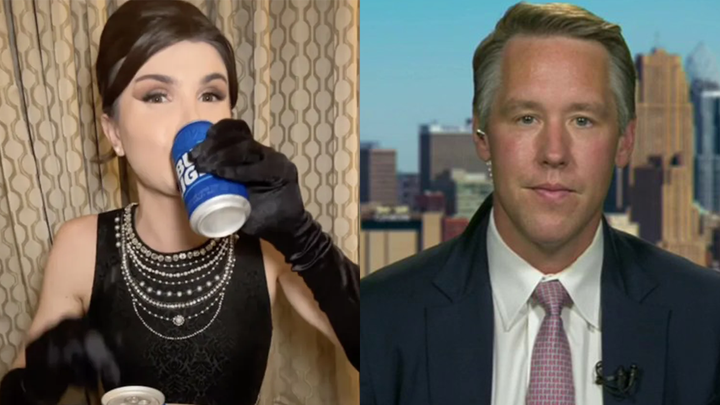A former Anheuser-Busch executive is warning that the Bud Light backlash is not going away anytime soon after the beer brand reported another drop in sales for the fifth week in a row.
“Consumers feel like they’re having an impact. And every single week these sales numbers are being reported, and they’re getting worse and worse every single week. So I see this continuing to drag on until Bud Light makes a comment about what they stand for and what customers they’re going to serve,” former Anheuser-Busch executive Anson Frericks said on “Varney & Co” Friday.
Bud Light continued to see a decline in sales during the month of May as consumers nationwide continue to revolt against the nation’s top-selling beer brand over its controversial partnership with transgender influencer Dylan Mulvaney.
“With Bud Light, that was never part of the brand or part of the message. And I think that’s what’s upset so many people here. And that’s why I think this boycott is going to go on a lot longer than people give it credit for,” Frericks said.
Compared to a year ago, retail sales of Bud Light in the U.S. were down by 23.6% in the week ending on May 6, surpassing the 23.3% decline the brand saw in the last week of April, according to data from Bump Williams Consulting and NielsenIQ, cited by the New York Post.
“There’s two reasons that boycotts tend to be successful. The first is when it’s easy for consumers to switch to other brands. And it’s secondarily when people feel like they’re having an impact,” Frericks said. “And in this, Bud Light, it’s not very that much different than Coors Light or Miller Lite. It’s water, it’s barley, it’s hops. What sets it apart is its messaging. And so it’s easy for consumers to switch the grocery store, the convenience store, and… consumers feel like they’re having an impact.”
“What does Bud Light stand for? Bud Light… was a brand that was never about politics,” Frericks continued. “This is always about a brand that brought people together. It was about football, It was about sports. It was about music. It never got involved in political situations. That’s why it was enjoyed by both Republicans and Democrats equally, and that was what made the brand actually remarkable, is that it was remarkably unpolitical and this is just a political situation they should not have got themselves in.”
In the meantime, the company has since attempted to make amends with its customers. Bud Light marketing vice president Alissa Heinerscheid and Daniel Blake, who oversees marketing for Anheuser-Busch’s mainstream brands, both took a leave of absence after the backlash, particularly after Heinerscheid was caught in an interview blasting the brand as “fratty” with “out of touch humor.” A new country-based ad aired during the NFL Draft on April 27 as part of a new campaign.
The company has also attempted to contextualize the Mulvaney videos, explaining that a “third-party ad agency” was responsible for the collaboration with no intention to sell the can. Anheuser-Busch stated that the marketing firm has since been fired, though it declined to name the company.
The company is also set to launch a line of camouflage aluminum bottles that promote the “Folds of Honor” program, which provides educational scholarships for families of fallen and disabled American military service members and first responders, the New York Post reported.
Many have argued the attempts to undo the damage from the Mulvaney marketing campaign will not undo the damage done to the brand. Frericks said he doesn’t see the company’s efforts to rekindle a following working.
“One thing that they haven’t done is say they made a mistake with this campaign and been clear about who they’re going to serve moving forward,” he said. “Is it going to be their shareholders and their customers who want them just to create a Bud Light that’s apolitical, or are they going to be serving their stakeholders? These are the people that want BlackRock, State Street, Vanguard, who are asking them to serve political organizations, activists.”
“I think until they’re clear and they make it clear that they want to serve their customers moving forward, unfortunately, I don’t see this going away,” he said.

